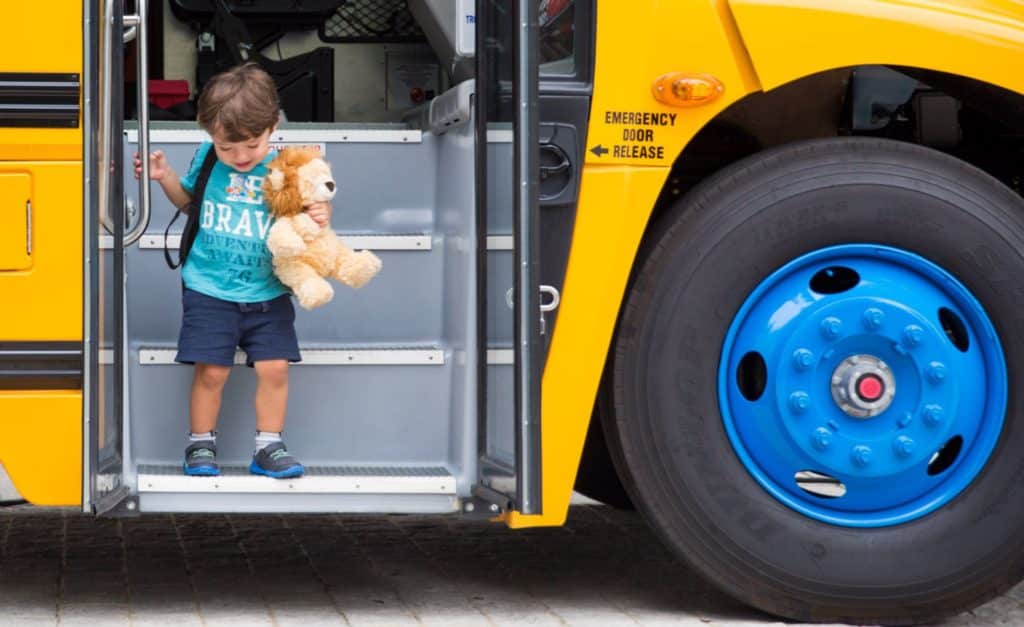
Electric school buses like this one from Lion Electric are popping up across Canada. (Photo: Eric Schaff and Lion Electric:)
As urgency to respond to the climate crisis mounts, effective climate solutions that also improve health are crucial — solutions like transitioning diesel-powered school buses to electric.
Up to 70 per cent of Canada’s school bus fleet is powered by diesel, a fossil fuel that causes air pollution and poor health while worsening climate change.
Children are particularly vulnerable to diesel emissions. Research shows they cause cancer and respiratory, cardiovascular and reproductive harms. These are worse in low-income neighbourhoods that confront disproportionately high levels of air pollution. Diesel engines create 100 times more particulate matter than gasoline-powered engines.
Particulate matter includes black carbon, a short-lived airborne particle linked to global heating and adverse health effects. Transportation is the largest source of black carbon in Canada. It can be inhaled easily and end up in lung tissue or in the cardiovascular system.
Diesel emissions caused 710 premature deaths in Canada in 2015, and are responsible for 2.2 million acute respiratory symptom days, 170,000 asthma symptom days and 3,000 acute bronchitis episodes in children per year.
How can we best tackle these health challenges and fight climate change at the same time? The Canadian Electric School Bus Alliance is advocating to electrify Canada’s school bus fleet. The alliance is calling for all new school buses to be electric by 2040. In Ontario, only 20 of more than 20,000 school buses are electric.
The Canadian Electric School Bus Alliance is advocating to electrify Canada’s school bus fleet.
An electric school bus saves about 17 tonnes of greenhouse gas emissions each year compared to a diesel school bus. In Ontario, that means the emissions-reduction potential across the province’s entire school bus fleet would be 4,080,000 tonnes over the 12-year life of a bus.
Compared to other sectors of the economy in need of rapid decarbonization, provincial governments have more influence over procuring publicly owned school buses. Research in B.C. shows that electric school buses are viable options for fleet managers. Between 2021 and 2022, B.C.’s subsidy programs helped electrify approximately four per cent of the public sector fleet. Barriers need to be overcome to increase that number. School districts must invest in charging infrastructure, potential electrical upgrades and skills training. Along with better health and climate outcomes, shifting to electric school buses also saves money. Compared to their diesel counterparts, the operating costs for electric school buses will bring about $17,000 in savings per bus each year for B.C. school districts.
The transition to an electric fleet would also bring savings in health care expenses from less air pollution. It’s been estimated that $11,800 will be saved in health care costs over the 12-year lifetime of a single bus.
For the sake of the two million plus children travelling to and from school every day in Canada and to make air cleaner for all, switching to electric school buses is a winning proposition.


